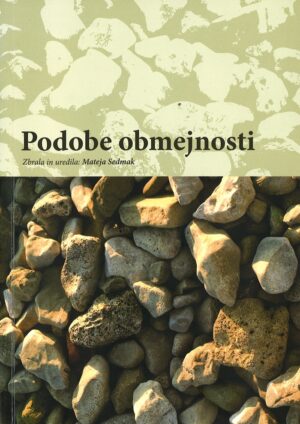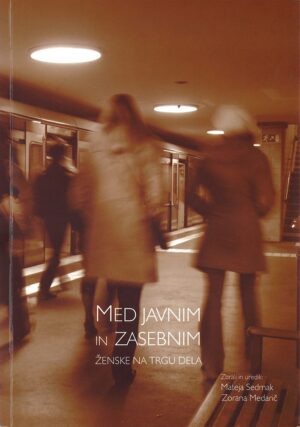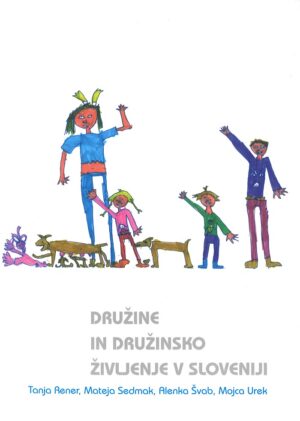Research Areas:
- Ethnic studies
- Intercultural studies
- Migrations
- Vulnerable social groups
- Sociology of family
- Sociology of everyday life
Biography:
Mateja Sedmak, PhD in Sociology, is Principal Research Associate and Head of the Institute for Social Sciences at the Science and Research Centre Koper. Her research interests include ethnic and intercultural studies, migration, management of cultural diversity, and topics in sociology of everyday life and sociology of the family. She is the Head of the Section for Intercultural Studies at Slovenian Sociological Society (SSD) and was also a member of the SSD Presidium from 2014-2017. She is editor of the journal Annales – Series Historia et Sociologia (SI) and member of the editorial boards of: Social Science Discussions (SI), Italian Sociological Review (IT) and Demography (SR). Between 2003 and 2016 she was a lecturer at the University of Primorska (Faculty of Humanities, Faculty of Tourism Studies and Kinesiology).
Between 2000 and 2013 she headed the Center for Public Opinion Research at ZRS Koper. She was a member of the Senate of the University of Primorska (2003-2007 and 2013-2016) and the Senate of the Faculty of Humanities. She was a member (2004-2011) of the Commission for the Promotion of the Role of Women in Science at the Ministry of Education, Science and Technology. Since 2017 she has been the President of Scientific Council of ZRS Koper. Since 2016 she has also been a member of the Council for Social Sciences at ARRS and since its establishment in 2020 she has been a member of the Council of Social Science Data Archive and since the same year she has also been a member of Ethics Commission of the Koper Science and Research Center.
Within the ARRS Young Researchers Program she mentored successfully completed PhDs of the following young researchers: Dr Boštjan Bugarič (2006), Dr Eva Podovšovnik (2007), Dr Ana Kralj (2007), Maja Zadel (2016) and Barbara Gornik (2016); Ksenija Perkovič (2019); Lucija Dežan (2019-). For her exceptional mentoring work, she received recognition and a place among the finalists for the Selection of a Mentor 2017, an award given to the best mentors of PhD students by the Young Academy in collaboration with Public Agency for Research.
She presented her work at scientific conferences and meetings in European countries as well as in the United States, in institutions such as the University of Oxford, South Bank University, Columbia University, University of Copenhagen, University Bielsko-Biala, University of Vienna, University of Estoril, University of Barcelona, University of Belgrade, University of Sarajevo and others.
He is the leader of many national and international projects, including the MiCREATE project – Migrant Children and Communities and A Transforming Europe, funded by the Research and Innovation Grant Scheme, Horizon 2020 program. The Micreate project is carried out by a consortium of 15 partner institutions and over 80 researchers from Europe and Turkey. As well as the international project In Whose Best Interest? Exploring Unaccompanied Minors ‘Rights through the Lens of Migration and Asylum Processes (European Commission, 2014-2015) in Children’s Voices: Exploring Interethnic Violence and Children’s Rights in the School Environment (European Commission – FRC program, 2011-2012).
She is co-editor of Unaccompanied Children in European Migration and Asylum Practices: In Whose Best Interests?, published in June 2017 by the renowned international publisher Routledge, Taylor and Francis Group, and co-editor of Children’s voices: studies of interethnic conflict and violence in European schools (Routledge research in international and comparative education). Her extensive publication activity is recognized in Slovenia and internationally:
Research activity:
Mateja Sedmak was and still is a leader of several international and national research projects.
Leader of international projects:
– Migrant Children and Communities in A Transforming Europe (MiCREATE), (Horizont, 2020; Research and Inovation Grant sheme, 2019-2021);
– DC4AC- Regional Centre for Dual Career Politics and Advocacy (DC4AC) leader for Slovenia (European Commission Erasmus + program, 2015-2017);
– In Whose Best Interest? Exploring Unaccompanied Minors ‘Rights through the Lens of Migration and Asylum Processes (European Commission, 2014-2015);
– Children’s Voices: Exploring Interethnic Violence and Children’s Rights in the School Environment (European Commission – FRC program, 2011- 2012),
– Study on indirect measurement methods for undeclared work in the EU (Fondazione Giacomo Brodolini, Italy, 2009),
– Ethnic minority and Roma women: a case for gender equality? (Fondazione Giacomo Brodolini, Italy, 2008),
– Study on poverty and social exclusion in rural areas (Fondazione Giacomo Brodolini, Italy, 2006-2008).
– Job Instability and Changes in Family and Household Trends (European Commission; 2005 –2006)
Leader of national projects: (selection in last years):
– Identification, classification and potentials for the development of social tourism products in Slovenia – with an emphasis on programs for seniors (CRP project: Slovenian Research Agency and Ministry of Economic Development and Technology, 2015-2017);
– Intercultural integration on the wings of fairy tales (Ministry of the Interior, 2015);
– SOS: stress, absence, distress (Public tender for co-financing projects of social partners in the field of improving the working environment 2010-2012)
– Research on the financing of the Foundation for Financing Disabled and Humanitarian Organizations in the Republic of Slovenia (applied project, FIHO financier, April – June 2009);
– Minorities and border social realities as factors of integration processes (study of the area of Slovene-Italian cultural contact (L5-7003, 2005-2008);
– Analysis of domestic violence in Slovenia – proposals for prevention and measures (V5-0954; 2004 -2006);
– Women in the Slovenian Armed Forces – designing strategies for greater inclusion and better working conditions (M5-0040, 2004-2006);
– Identity and ethnic structure of Slovenian Istria (L5-3433, 2001-2004);
– National and cultural identity in the area of Slovene-Italian cultural contact in the processes of European integration (V5-0536, 2001-2003);
– Drug problem on the coast: Analysis of the situation and the development of strategic sources (applied project, financier: Municipality of Piran and the Municipality of Izola, 2004);
– Economic position of the Italian minority in Slovenia (applied project, financiers: Ministry of Economy of the Republic of Slovenia and Center for the Promotion of Entrepreneurship, Piran, 2002).
 en
en Slovenščina
Slovenščina Italiano
Italiano


